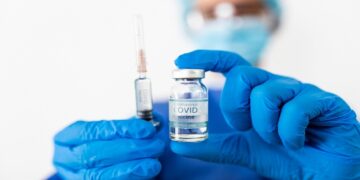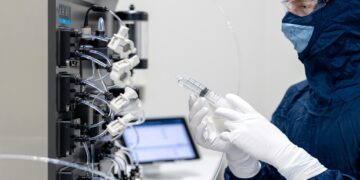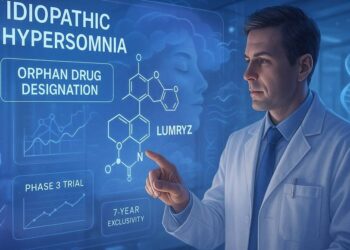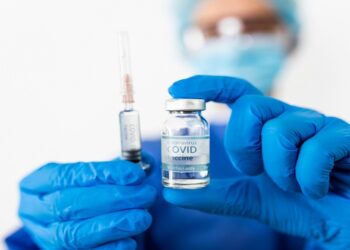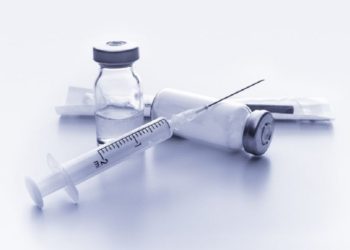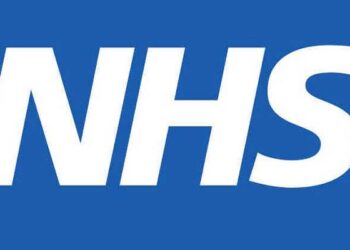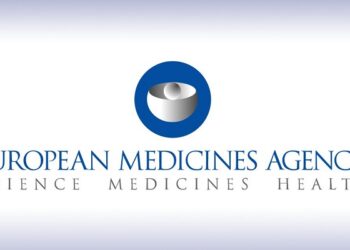Merck (NYSE: MRK), known as MSD outside the United States and Canada, announced today that the U.S. Food and Drug Administration (FDA) has approved BRIDION® (sugammadex) Injection 100 mg/mL (equivalent to 108.8 mg/mL sugammadex sodium) for the reversal of neuromuscular blockade (NMB) induced by rocuronium bromide and vecuronium bromide in adults undergoing surgery.
BRIDION works differently than neostigmine, an agent used to reverse non-depolarizing neuromuscular blocking agents (NMBAs) by increasing the neurotransmitter acetylcholine at the neuromuscular junction. BRIDION forms a complex with the non-depolarizing NMBAs rocuronium and vecuronium, thereby removing these agents from the neuromuscular junction and facilitating the return of muscle function. Unlike neostigmine, BRIDION can be used to reverse different levels of rocuronium and vecuronium-induced NMB, including deep block (1-2 post-tetanic counts [PTCs]).
“The FDA approval of BRIDION reflects Merck’s continued commitment to develop medicines that address unmet needs,” said Dr. David Michelson, vice president, Neurosciences, Merck Research Laboratories. “With BRIDION, we now have a new option with a different mechanism of action to reverse neuromuscular blockade induced by rocuronium and vecuronium in adults undergoing surgery.”
BRIDION is contraindicated in patients with known hypersensitivity to sugammadex or any of its components. Hypersensitivity reactions that occurred varied from isolated skin reactions to serious systemic reactions and have occurred in patients with no prior exposure to sugammadex.
“Anesthesia professionals have a new option in the clinical care of surgical patients,” said Dr. Ronald D. Miller, professor emeritus, Department of Anesthesia & Perioperative Care, University of California, San Francisco. “When surgical procedures end with patients in deep block, as a result of rocuronium or vecuronium administration, BRIDION provides a unique reversal option to restore neuromuscular function.”
BRIDION Clinical Studies
One hundred fifty-seven patients were evaluated in a phase 3, multicenter, randomized, parallel-group, active-controlled safety assessor-blinded clinical study. In the study, patients received either rocuronium or vecuronium and underwent elective surgical procedures under general anesthesia that required endotracheal intubation and maintenance of neuromuscular blockade. At 1-2 PTCs (deep block), after the last dose of rocuronium or vecuronium, 4 mg/kg BRIDION or 70 mcg/kg neostigmine was administered. The time from the start of administration of BRIDION or neostigmine to recovery of the train-of-four (T4/T1) ratio of 0.9 was assessed. Generally, a T4/T1 ratio ≥0.9 correlates with recovery from neuromuscular blockade. Neostigmine was not expected to reverse neuromuscular blockade at a depth of 1-2 PTCs.
Patients treated with BRIDION achieved rapid recovery of neuromuscular function from rocuronium-induced (n=37) deep block (1-2 PTCs) in a median time of 2.7 minutes with a 25th and 75th percentiles of 2.1 and 4.3 minutes respectively, and from vecuronium-induced (n=47) deep block in a median time of 3.3 minutes with a 25th and 75th percentiles of 2.3 and 6.6 minutes, respectively. There were 7 and 6 censored observations in the rocuronium and vecuronium groups, respectively.
An additional phase 3, multicenter, randomized, parallel-group, active-controlled safety assessor-blinded clinical study evaluated 189 patients who received either rocuronium or vecuronium and underwent elective surgical procedures under general anesthesia that required endotracheal intubation and maintenance of neuromuscular blockade. At the reappearance of the second twitch (moderate block), after the last dose of rocuronium or vecuronium, 2 mg/kg BRIDION or 50 mcg/kg neostigmine was administered. The time from the start of administration of BRIDION or neostigmine to recovery of the train-of-four (T4/T1) ratio of 0.9 was assessed.
Patients treated with BRIDION (n=48) achieved faster recovery of neuromuscular function from rocuronium-induced moderate block in a median time of 1.4 minutes with a quartile 1 and quartile 3 of 1.2 and 1.7 minutes, respectively, versus a median time of 21.5 minutes with a quartile 1 and quartile 3 of 9.8 and 42.0 minutes, respectively with neostigmine (n=48). Reversal of vecuronium-induced moderate NMB with BRIDION (n=48) occurred in a median time of 2.1 minutes with a quartile 1 and quartile 3 of 1.8 and 3.4 minutes, respectively, versus 29.0 minutes with a quartile 1 and quartile 3 of 12.2 and 76.2 minutes, respectively with neostigmine (n=45).
Selected Safety Information about BRIDION
Potentially serious hypersensitivity reactions, including anaphylaxis, have occurred in patients treated with BRIDION. In a clinical study, anaphylaxis occurred in 0.3 percent (n=1/299) of healthy volunteers treated with BRIDION. Observe patients for an appropriate period of time after administration and take the necessary precautions. Anaphylaxis has also been reported in the post-marketing setting. Clinical features in anaphylaxis reports have included dermatologic symptoms; hypotension often requiring the use of vasopressors; and prolonged hospitalization and/or the use of additional respiratory support until full recovery.
Cases of marked bradycardia, some of which have resulted in cardiac arrest, have been observed within minutes after the administration of BRIDION. Monitor for hemodynamic changes and treat with anticholinergic agents, such as atropine, if clinically significant bradycardia is observed. Ventilatory support is mandatory for patients until adequate spontaneous respiration is restored and the ability to maintain a patent airway is assured. Should neuromuscular blockade persist after BRIDION or recur following extubation, take appropriate steps to provide adequate ventilation.
In clinical trials, a small number of patients experienced a delayed or minimal response to BRIDION. Monitor ventilation until recovery occurs.
A minimum waiting time is necessary before re-administration of a steroidal neuromuscular blocking agent after administration of BRIDION. If neuromuscular blockade is required before the recommended waiting time has elapsed, use a nonsteroidal neuromuscular blocking agent.
Due to the administration of BRIDION, certain drugs, including hormonal contraceptives, could become less effective due to a lowering of the (free) plasma concentrations. Consider re-administration of the other drug, administration of a therapeutic equivalent drug, and/or non-pharmacological interventions as appropriate.
Recurrence of neuromuscular blockade may occur due to displacement of rocuronium or vecuronium from BRIDION by other drugs. Mechanical ventilation may be required. Stop the administration of the drug which caused displacement, if being administered by infusion.
The use of lower than recommended doses of BRIDION may lead to an increased risk of recurrence of neuromuscular blockade and is not recommended. Also, when drugs which potentiate neuromuscular blockade are used in the post-operative phase, recurrence of neuromuscular blockade is possible.
BRIDION doses of up to 16 mg/kg were associated with increases in activated partial thromboplastin time and prothrombin time/international normalized ratio. Carefully monitor coagulation parameters in patients with known coagulopathies; being treated with therapeutic anticoagulation; receiving thromboprophylaxis drugs other than heparin and low molecular weight heparin; or receiving thromboprophylaxis drugs and who then receive a dose of 16 mg/kg sugammadex.
BRIDION is not recommended for use in patients with severe renal impairment, including those requiring dialysis. BRIDION also has not been studied for reversal following rocuronium or vecuronium administration in the ICU.
Do not use BRIDION to reverse nonsteroidal neuromuscular blocking agents or steroidal neuromuscular blocking agents other than rocuronium or vecuronium.
The most common adverse reactions (reported in ≥ 10% of patients at a 2, 4, or 16 mg/kg BRIDION dose and higher than placebo rate) were vomiting (11 percent, 12 percent, or 15 percent versus placebo at 10 percent), pain (48 percent, 52 percent, or 36 percent versus placebo at 38 percent), nausea (23 percent, 26 percent, or 23 percent versus placebo at 23 percent), hypotension (4 percent, 5 percent, or 13 percent versus placebo at 4 percent), and headache (7 percent, 5 percent, or 10 percent versus placebo at 8 percent).
BRIDION Availability
BRIDION is expected to be available in January 2016.





